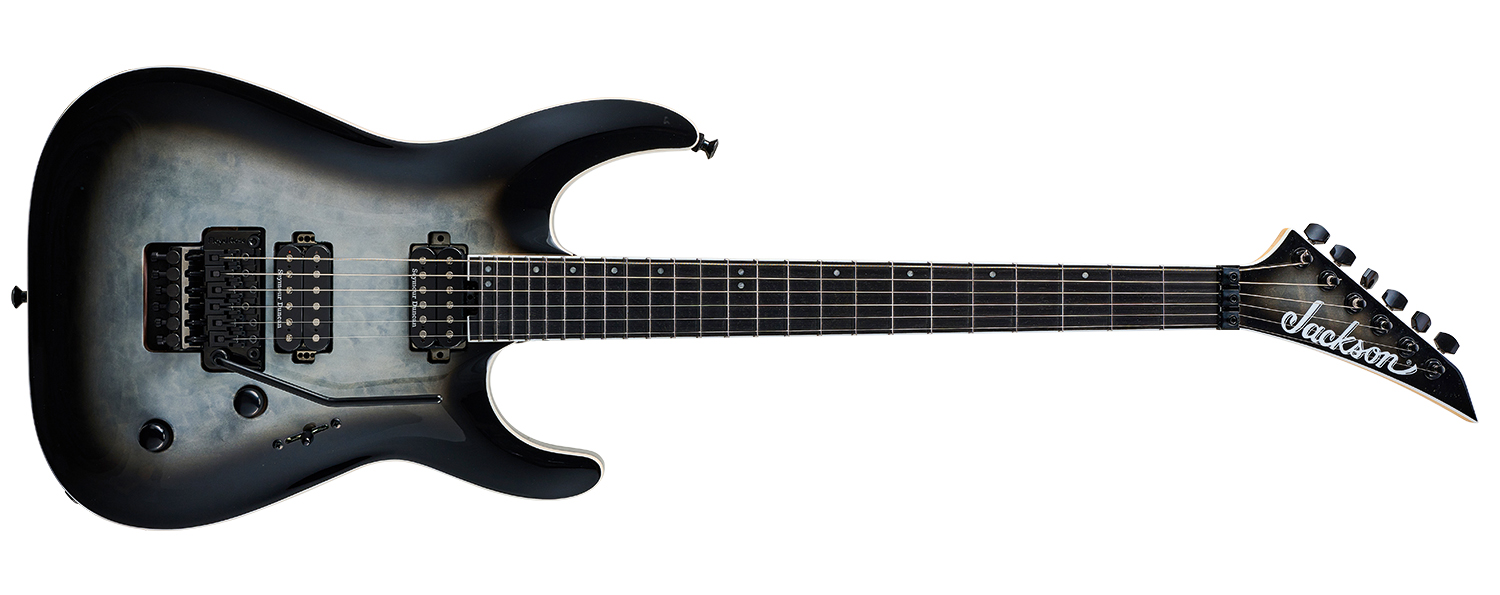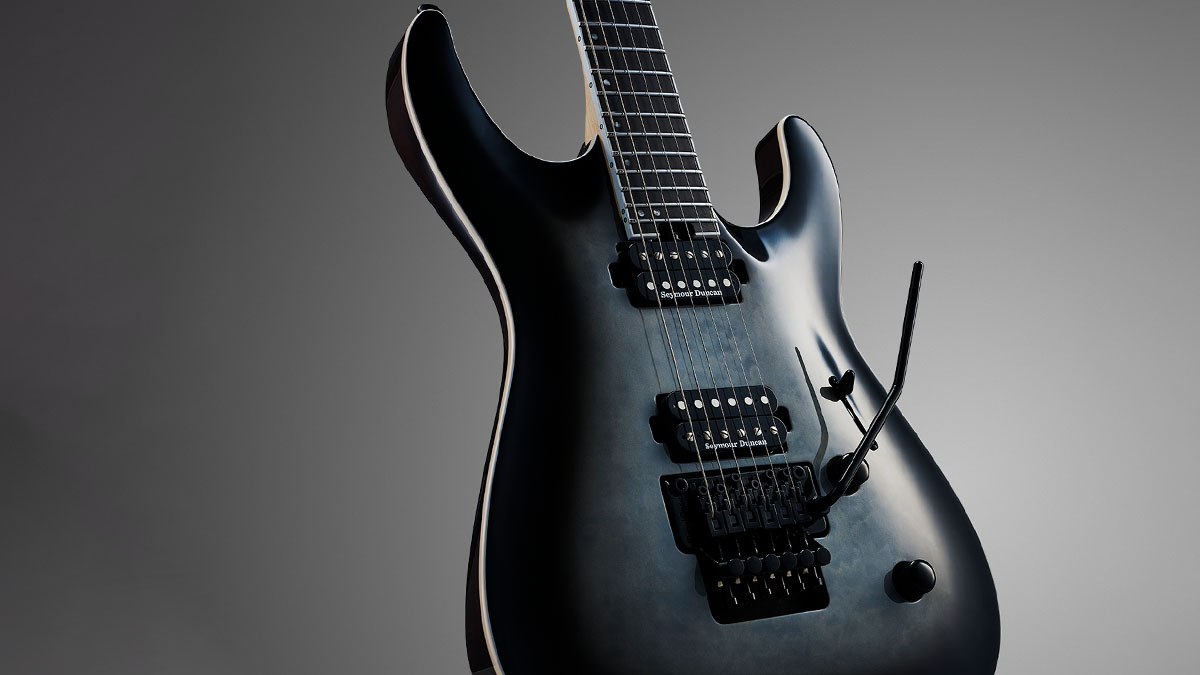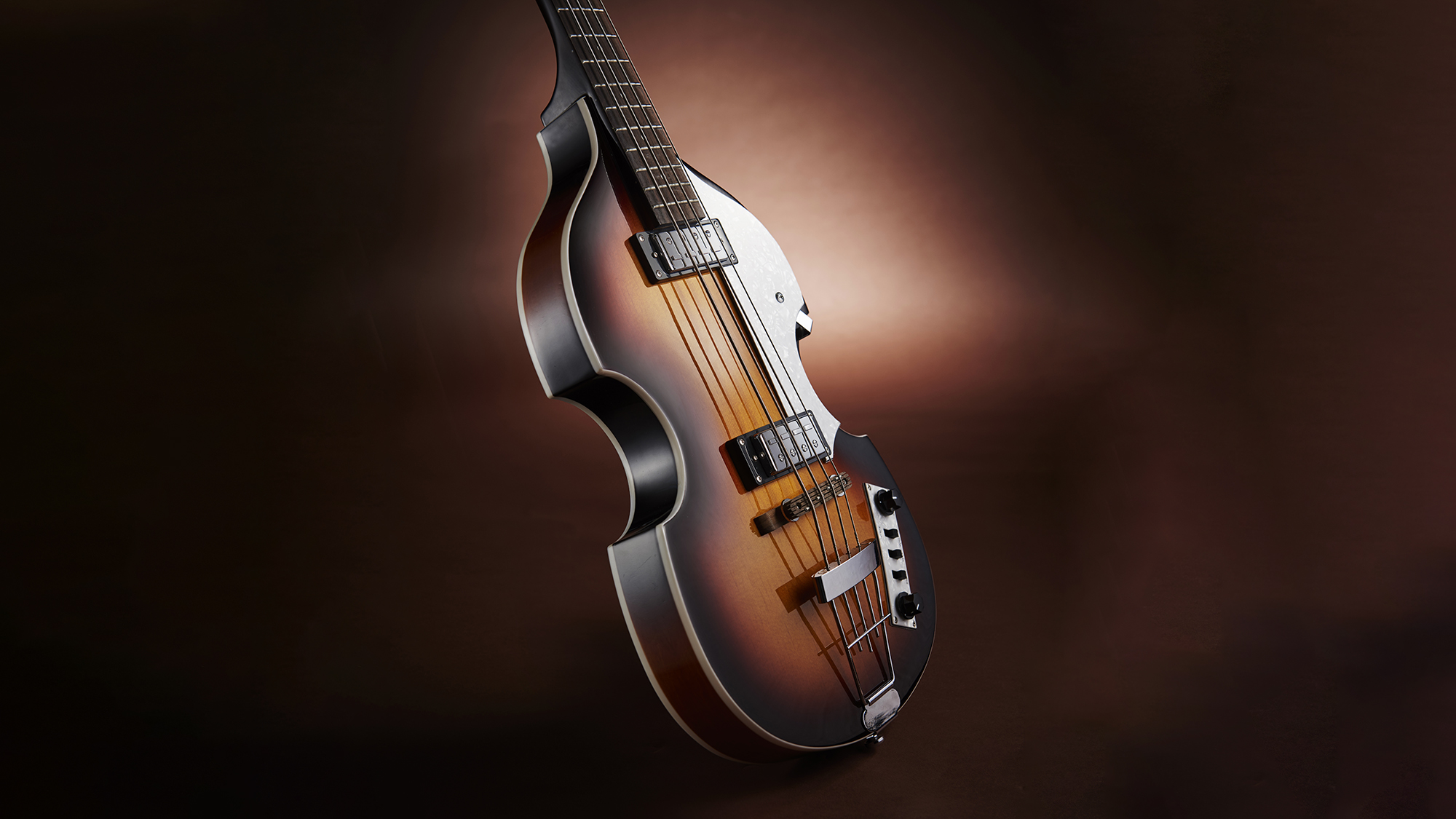Guitar World Verdict
This is a Dinky that lives up to the legacy behind it – offering great playability and impeccable tones in that famous petite package.
Pros
- +
Top-quality specs.
- +
Supremely playable.
- +
Ergonomic body.
- +
Faultless rock and metal tones.
Cons
- -
Some of the in-between tones are less box office.
You can trust Guitar World
With a heritage stretching back all the way to the mid-’80s, the Jackson Dinky was originally designed for guitar players wanting big tones out of a smaller package.
Technically speaking, the body shape is 7/8 that of a typical Superstrat like the Jackson Soloist – which means its ever-so-slightly less bulky and cumbersome figure lends well to ambitious acrobatics, whether that takes place on stage or the fretboard itself.
In 2023, these models were reborn in Jackson’s newly launched Chinese-manufactured Pro Plus series, bringing a lot of the features and sounds from their more costly American-made instruments to a more affordable price point.
Perhaps one of the biggest areas of discussion here is the choice of body wood – the new models utilising okoume, one of several hardwoods commonly referred to as African mahogany, to conjure the warm and punchy tones rock and metal players tend to be looking for.
In the past, Dinkys have usually been made out of alder or basswood, though in recent years we’ve seen more usage of okoume – not only from Jackson but other manufacturers like Ernie Ball Music Man, Ibanez and Epiphone.

And, unlike the regular solid finish DKA Dinkys, the DKAQs feature a quilt maple top for extra upper-frequency resonance and, of course, that instantly recognisable aesthetic grandeur, as wonderfully demonstrated by this rather stunning Ghost Burst model.
Other than that, it’s very much business as usual, with a pair of tried-and-tested Seymour Duncan humbuckers and a Floyd Rose 1000 series tremolo providing all the tonal firepower and tuning stability you’d be hoping for. With a five-way switch, and an overall tone control, it’s versatile enough to cover just about any genre from jazz and funk to blues and beyond.
All the latest guitar news, interviews, lessons, reviews, deals and more, direct to your inbox!
Positions two and four are perhaps a little twangy compared to the warmer EQ curve of a Strat, but make no mistake, if there’s anything a Jackson Dinky should excel at, it’s hard rock and heavy metal. From palm-muted chugging rhythms to the screaming harmonics of bands like Pantera and Slayer, the DKAQ is a rugged workhorse you can truly depend on in high-gain situations.
Admittedly, these models live on the more expensive side of Chinese-made guitars, though it’s the inclusion of premium aftermarket upgrades that make them worthy of being considered mid-tier rather than entry level.
In fact, if you were to acquire just the pickups and tremolo system as standalone parts, it would cost you almost half the price, which should help explain where the money is going. All in all, this is a Dinky that lives up to the legacy behind it – offering great playability and impeccable tones in that famous petite package.
Specs
- PRICE: $1,299 / £1,119
- BODY: Okoume with quilt maple top
- NECK: Five-piece bolt-on maple/walnut
- FINGERBOARD: Ebony
- FRETS: 24, jumbo stainless steel
- PICKUPS: Seymour Duncan JB TB-4 (bridge) and Seymour Duncan ’59 SH-1N (neck)
- CONTROLS: Five-way blade switch, single volume control and single tone control
- HARDWARE: Floyd Rose 1000 Series Double-Locking Tremolo (Recessed), locking strap buttons and die-cast tuners
- FINISH: Ghost Burst, Transparent Purple Burst, Firestorm
- CONTACT: Jackson
Amit has been writing for titles like Total Guitar, MusicRadar and Guitar World for over a decade and counts Richie Kotzen, Guthrie Govan and Jeff Beck among his primary influences as a guitar player. He's worked for magazines like Kerrang!, Metal Hammer, Classic Rock, Prog, Record Collector, Planet Rock, Rhythm and Bass Player, as well as newspapers like Metro and The Independent, interviewing everyone from Ozzy Osbourne and Lemmy to Slash and Jimmy Page, and once even traded solos with a member of Slayer on a track released internationally. As a session guitarist, he's played alongside members of Judas Priest and Uriah Heep in London ensemble Metalworks, as well as handled lead guitars for legends like Glen Matlock (Sex Pistols, The Faces) and Stu Hamm (Steve Vai, Joe Satriani, G3).


